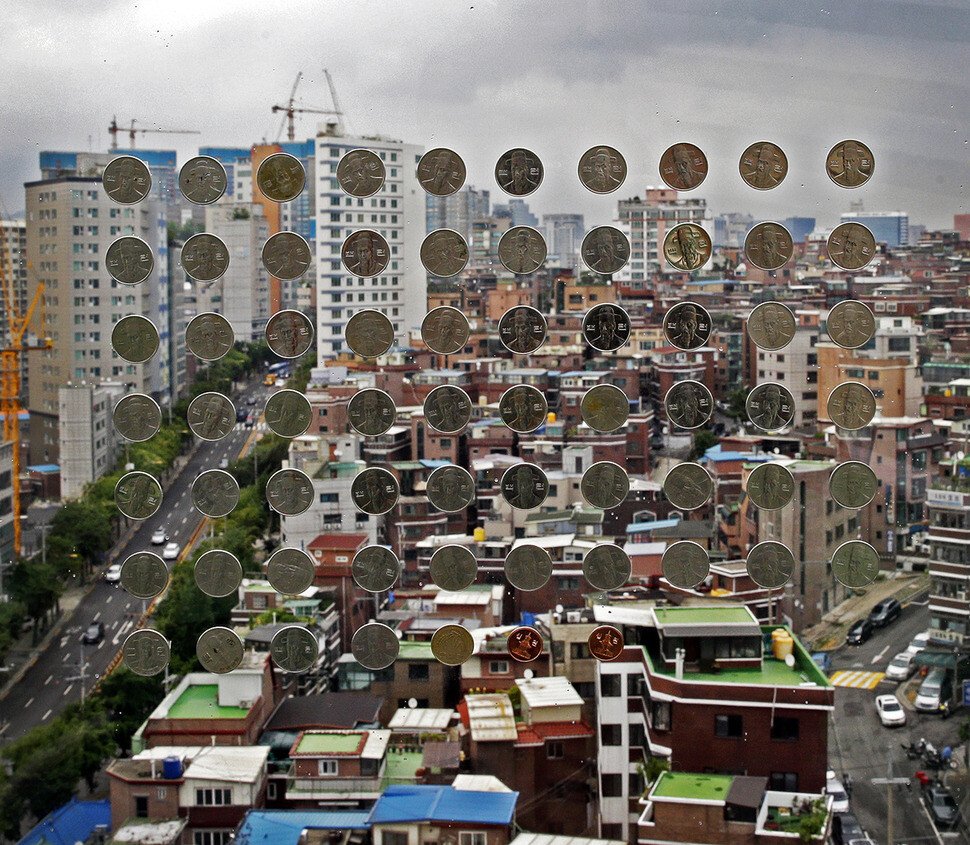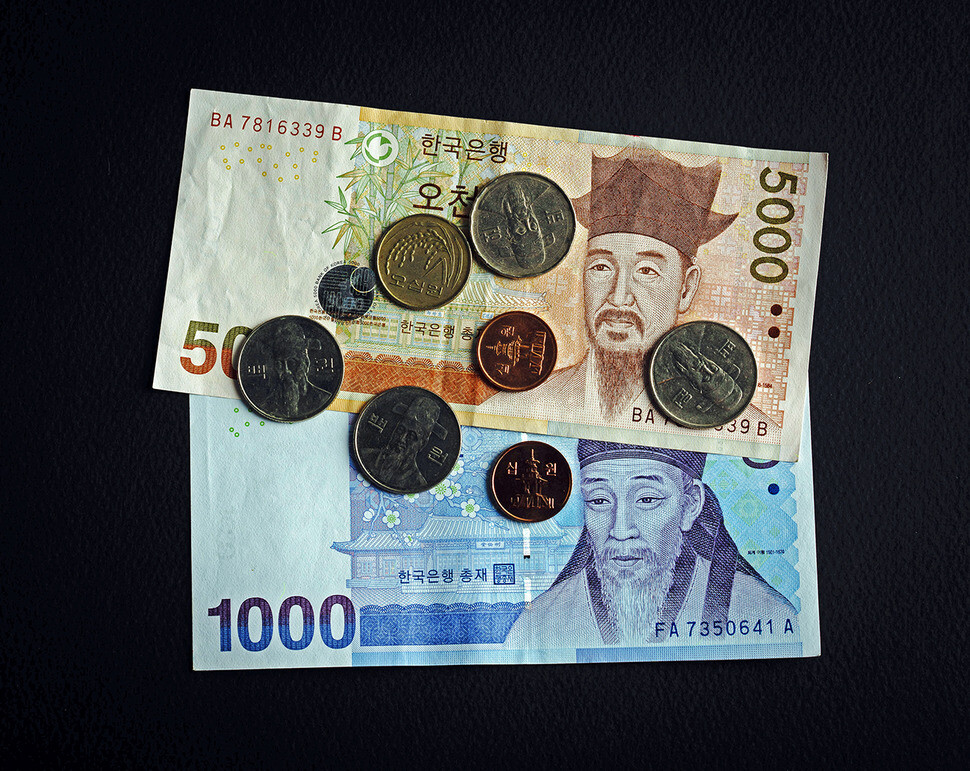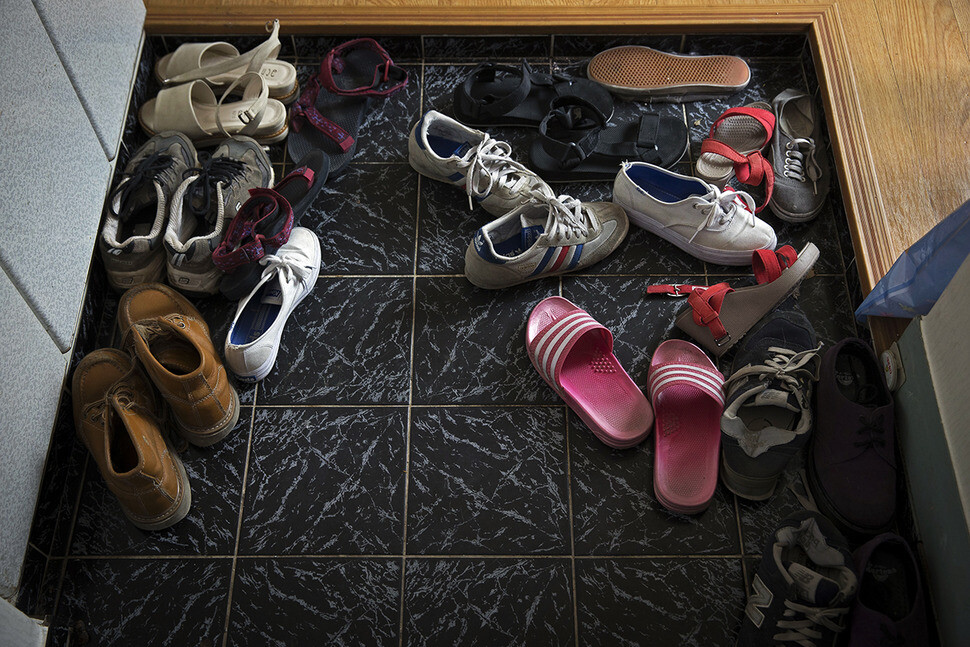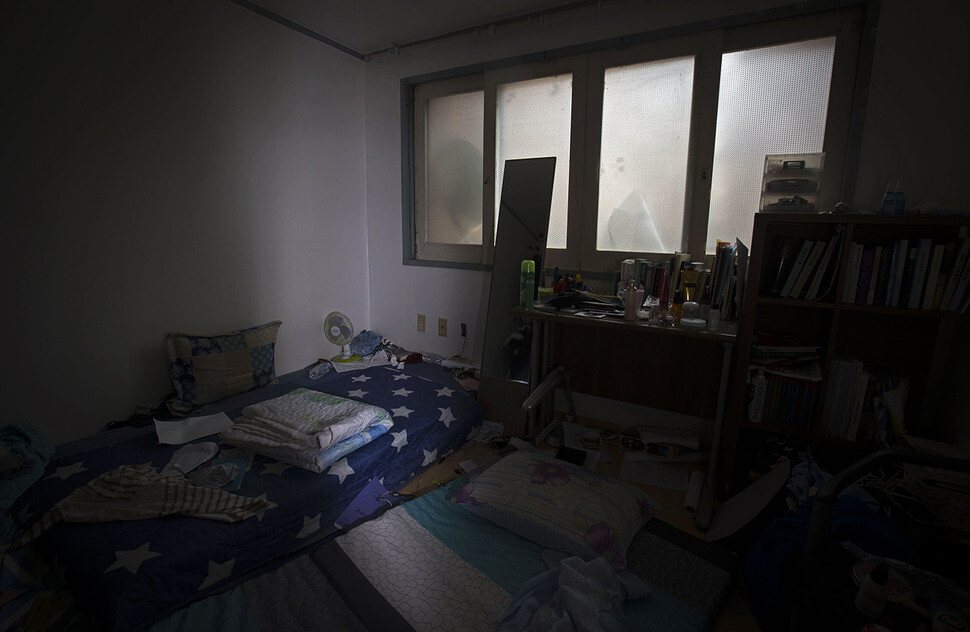hankyoreh
Links to other country sites 다른 나라 사이트 링크
Students in Seoul have hard time with studying and low-wage work

Kim, a 20-year-old student at a university in the Sinchon area of Seoul, is from the countryside. As soon as she started university, she got a part-time job to pay for her living expenses. Her family covers her tuition and rent, but she needs more to get by in Seoul.
“I don’t have time to study. I find myself wondering if this is a decent lifestyle, a life of dignity. I’m always frustrated,” she said.
At first, Kim looked into teaching private lessons. She figured it would be easy to find tutoring work in Seoul. She imagined she would be on easy street.

But even in the world of private lessons, there are “silver spoons” and “dirt spoons” – slang expressions that Koreans use to describe the haves and the have nots. Kim’s friends who had grown up in Seoul’s affluent Gangnam neighborhood easily landed tutoring gigs, but it wasn’t easy for a student with no connections in Seoul to find any.
Kim landed a part-time job at a bakery franchise located in Mapo. She works there on Mondays and Thursdays.
With an hourly wage of 6,100 won (US$5.49) and five or six hours of work a day, Kim takes home 250,000 won a month on average. She wanted more hours, but the management won’t let her work more than 15 hours a week.

According to Article 55 of the Labor Standards Act, “An employer shall allow workers at least one paid holiday per week on average.”
This means that part-time employees who work a minimum number of hours are owed a day’s wages on their day off. This is the holiday allowance, and anyone working at least 15 hours a week or at least 60 hours a month is entitled to receive it.
In an attempt to get around the Labor Standards Act, franchises in this large bakery chain ensure that their workers aren’t on the job for more than 15 hours a week.
The money that Kim makes at the bakery isn’t nearly enough to cover her living expenses. To make up the difference, she occasionally takes on other short-term gigs.

Since Kim has to juggle her studies with her part-time work, she never has enough time. She often has to skip meals and frequently catches colds.
One day, she had a really bad cold and ached all over. She needed to see a doctor, but she was completely broke. Just then, she ran across an ad on a job website for a head model at a sculpture academy and applied for the gig.
The gig required that Kim sit still for six hours a day and model for students at the academy. Despite feeling lousy, Kim has to sit up straight in the same position. The slightest motion provoked complaints from the students. While the part-time job had decent pay, around 7,000 to 8,000 won an hour, she felt it was perverse that she had to do such taxing work to earn money for a doctor’s visit.
With her job at the bakery chain and her part-time gigs, Kim makes 400,000 to 500,000 won a month. Since her family doesn’t live in Seoul, her fixed expenses are considerable: an average of 34,500 a month on medicine, 50,000 for transportation, 50,000 on cosmetics and toiletries, 46,690 for her mobile phone, 50,000 for books, 250,000 for food and 20,000 for clothing. At the end of the month, she has no money left.

Kim has developed an unnatural fixation on saving money however she can. For one meal each day, she picks up something cheap – a triangular hunk of rice wrapped in seaweed, ramen noodles, or “rice in a cup.” She knows it’s not good for her, but food is the part of her budget that’s the easiest to trim. She borrows books from the library to read whenever possible and only buys her university textbooks and books for seminars. She generally wears T-shirts that she buys for 5,000 won or so from a discount shop near the university.
“From an early age, I’ve been told that you can succeed if you work hard. But when I got to university, my values were shattered. Working 40 hours isn’t enough to live a decent life. I think the minimum wage should be 10,000 won (US$8.90) at least,” Kim said.
The minimum wage for 2017 was set at 6,470 won, which was 440 won (7.3%) higher than the 2016 rate. This was far lower than the demands made by labor activists and NGOs, which wanted the rate set at 10,000 won or at least a double-digit increase. The minimum wage affects the lives of 3.42 million people in South Korea, or one in five wage laborers. Working 40 hours a week at minimum wage adds up to 1,352,230 won a month.
During his state of the union address in Jan. 2015, US President Barack Obama said, “If you truly believe you could work full-time and support a family on less than US$15,000 a year, try it.”
South Korea’s politicians and businesspeople ought to be asked a similar question: “Do you think you could support your family on 1,352,230 won a month? If so, you should try it yourself.”
By Kim Myoung-jin and Lee Jeong-a, staff photographers
Please direct questions or comments to [english@hani.co.kr]

Editorial・opinion
![[Column] Season 2 of special prosecutor probe may be coming to Korea soon [Column] Season 2 of special prosecutor probe may be coming to Korea soon](https://flexible.img.hani.co.kr/flexible/normal/500/300/imgdb/original/2024/0426/3317141030699447.jpg) [Column] Season 2 of special prosecutor probe may be coming to Korea soon
[Column] Season 2 of special prosecutor probe may be coming to Korea soon![[Column] Park Geun-hye déjà vu in Yoon Suk-yeol [Column] Park Geun-hye déjà vu in Yoon Suk-yeol](https://flexible.img.hani.co.kr/flexible/normal/500/300/imgdb/original/2024/0424/651713945113788.jpg) [Column] Park Geun-hye déjà vu in Yoon Suk-yeol
[Column] Park Geun-hye déjà vu in Yoon Suk-yeol- [Editorial] New weight of N. Korea’s nuclear threats makes dialogue all the more urgent
- [Guest essay] The real reason Korea’s new right wants to dub Rhee a founding father
- [Column] ‘Choson’: Is it time we start referring to N. Korea in its own terms?
- [Editorial] Japan’s rewriting of history with Korea has gone too far
- [Column] The president’s questionable capacity for dialogue
- [Column] Are chaebol firms just pizza pies for families to divvy up as they please?
- [Column] Has Korea, too, crossed the Rubicon on China?
- [Correspondent’s column] In Japan’s alliance with US, echoes of its past alliances with UK
Most viewed articles
- 1Samsung subcontractor worker commits suicide from work stress
- 2‘We must say no’: Seoul defense chief on Korean, USFK involvement in hypothetical Taiwan crisis
- 3[Editorial] Korea’s surprise Q1 growth requires objective assessment, not blind fanfare
- 4No good, very bad game for Korea puts it out of Olympics for first time since 1988
- 5Division commander ordered troops to enter raging flood waters before Marine died, survivor says
- 6N. Korean delegation’s trip to Iran shows how Pyongyang is leveraging ties with Moscow
- 7Korea’s 1.3% growth in Q1 signals ‘textbook’ return to growth, says government
- 8US overtakes China as Korea’s top export market, prompting trade sanction jitters
- 9[Column] Park Geun-hye déjà vu in Yoon Suk-yeol
- 10[Column] Season 2 of special prosecutor probe may be coming to Korea soon